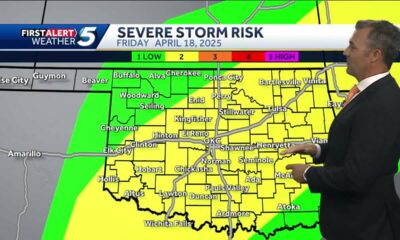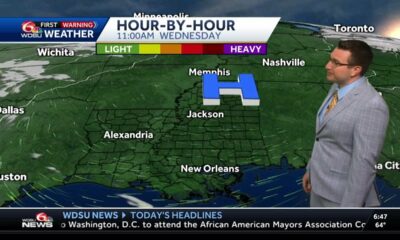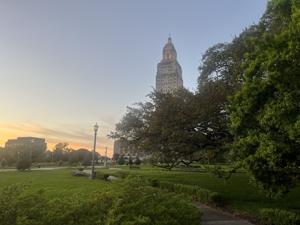(The Center Square) – The North Carolina Senate’s version of a state budget for the next two years breezed through three committees Tuesday with few changes or opposition.
The proposed budget, Senate Bill 257, includes income tax cuts, and a doubling of taxes for sports betting companies who operate in North Carolina from 18% to 36%.
The Senate spending proposal, unlike Gov. Josh Stein’s proposed budget, fully funds the state’s retirement plan. It also increases funding for the state health care plan by $318 million over the next two years.
It would raise teacher pay and funding for colleges and universities.
“This budget continues the success North Carolina has seen over the last decade and half,” Sen. Ralph Hise, R-Mitchell, one of the bill’s sponsors, told members of the Appropriations/Base Budget Committee.
The first year of the two-year proposed budget is $32.6 billion, the second year $33.3 billion, Hise said. It’s an increase of $1.3 billion, or 4% in the first year, and $733 million in the second year.
He described it as “modest growth” that still allows the state to replenish its “rainy day” reserve fund, which at the end of two years will be back at $4.75 billion. It will bring state funding for a new children’s hospital in Charlotte to $855 million.
It adds another $700 million for Hurricane Helene recovery, adding to the $1.4 billion already appropriated.
“It is also our understanding that Gov. Stein is working on another request for recovery needs,” Hise said. “But as yet, we are not at that place.”
Some of the state funds spent on hurricane relief will likely be reimbursed by the federal government, Hise added.
“We are hopeful the federal government will provide increased and expedited reimbursements,” Hise said. “But we must prepare to fend for ourselves.”
Under the proposed budget, most state employees would receive 1.25% raise the first year and a $3,000 bonus over the entire two-year period covered by the budget, said Sen. Michael Lee, R-New Hanover.
Correctional officers would receive a 5.25% raise with other state law enforcement officers also getting extra pay raises. Local law enforcement officers would receive $3,000 bonuses over the two-year period. Nurses employed by the state would also received higher 3.25% raises over the two years.
Teachers would receive a 3.3% raise over the two years plus a $3,000 bonus. With those raises, the average teacher pay in North Carolina will be $62,407, Lee said.
The proposed budget passed the Appropriations/Base Budget Committee, Finance Committee and Pensions, Finance and Aging Committee with only minor changes on Tuesday.











































